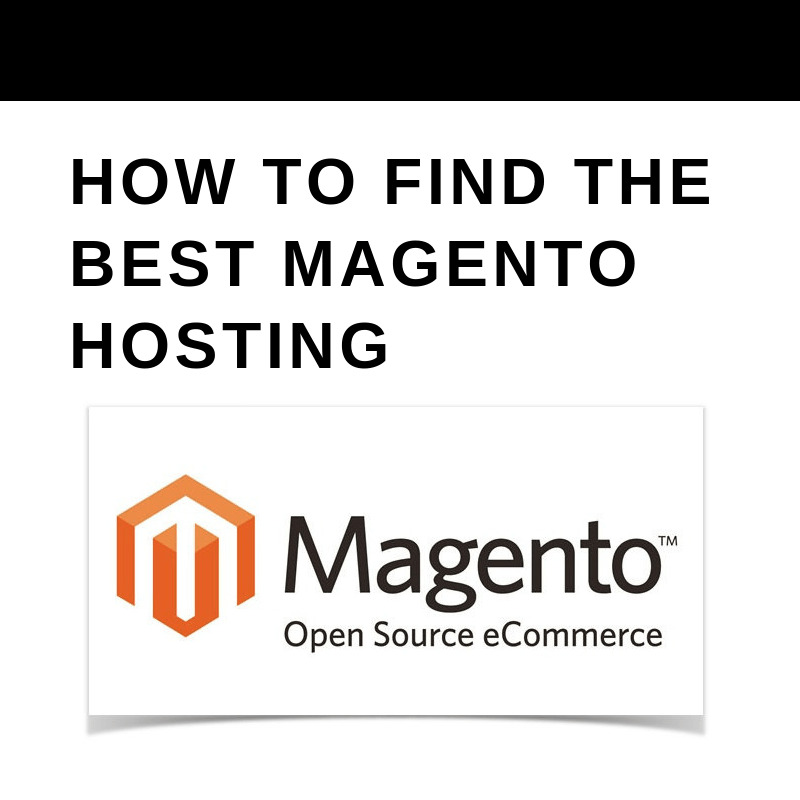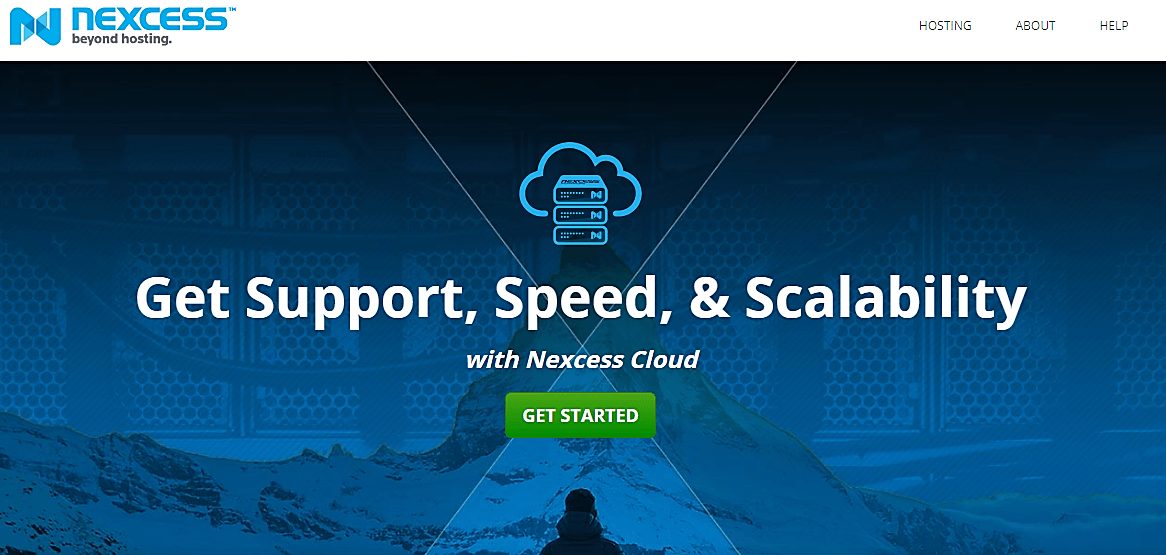Last Updated on December 8, 2023 by Ewen Finser
Imagine this. It’s Black Friday and you’ve stocked up your Magento-based online shop on an array of exclusive products, eagerly waiting to cash in on the season’s increasingly large number of shoppers.
Thankfully, everything starts off well in the morning, and then the traffic continues to swell progressively through the day. From the look of things, you should be able to break even by nightfall.

But, unfortunately, disaster strikes right before dusk. It begins with an email from an angry customer, who complains about slow page loading speeds. Then shortly, a second one follows with details about a transaction that failed to sail through.
And just as you look into that, all hell breaks loose. Your mailbox is suddenly hit by countless emails flying in from everywhere, and the customer service phone starts ringing continuously.
A quick check into your website then reveals then reveals the worst possible horror. You notice that it keeps going offline intermittently- subsequently triggering errors on pretty much all the pages.
In case you’re wondering, yes- that’s possible even on Magento-based sites. And that’s despite the fact that it’s, admittedly, a robust ecommerce platform that’s capable of supporting all types of businesses with superior e-commerce sites functionality.
But, let’s face it. Magento is no ordinary system. It’s more like a dependent beast that can only perform well within a favorable ecosystem. In other words- for you to holistically capitalize on its provisions, you have to leverage a solid Magento host.
And where should you begin?
If you’ve tried looking around, you’ve probably come across a wide range of solutions on the web. Unfortunately, most of them are pretty bland and ineffective, while others can only manage average performance.
The truth of the matter is- you cannot afford to compromise your online store with a typical hosting provider. You should only pick the best or nothing. Besides, considering the fact that 86% of shoppers are willing to pay extra for an improved experience, you stand to make more with an effectual hosting solution.
But, how can you identify the best Magento hosting?
How To Choose The Best Magento Web Hosting Provider
e-Commerce Business Website Needs
All things considered, choosing a Magento hosting provider starts and ends with your website. The suitability of a service principally depends on how its features ultimately fit your site’s needs.
Consequently, it’s critically important to understand exactly what your online store requires before you proceed to look into other factors.
So, what should you assess?
Traffic Patterns
Magento hosting services not only come with varying bandwidth allocations but also handle the corresponding traffic differently. Hence, you should understand your current traffic patterns, plus what you plan to gain sequentially over the long haul.

Although there are several tools you could use for this, Google Analytics is particularly ideal because of its accuracy and level of detail. Pay close attention to the periodic averages to get a rough idea of the appropriate hosting architecture scope and size.
But, it doesn’t end there. Fact is- the performance of your Magento hosting service goes beyond the daily traffic numbers. A website that gets 200 server requests spread across two hours in a day, for example, needs a different hosting setup compared to one whose 200 requests are distributed evenly throughout the day.
Since Google Analytics only deals with averages, you should get such details from your site’s raw log files. Review the time slices of the server requests to comprehend the traffic patterns during peak, normal and off-peak hours.
Website Size and Architecture
Magento hosting comes with varying storage allocations. Therefore, to determine how much server space your site needs, you should calculate the amount of data you’re seeking to host.
That said, it’s also worth noting that sites with the same amount of data might not technically require similar server allocations. The more dynamic your online store is, the larger the allocation and power you’ll need from your hosting provider.
Hence, you should comprehensively analyze your site’s architecture to understand its setup, all the variables, plus the possible configuration abilities you might need as you upscale or downscale in the near future.
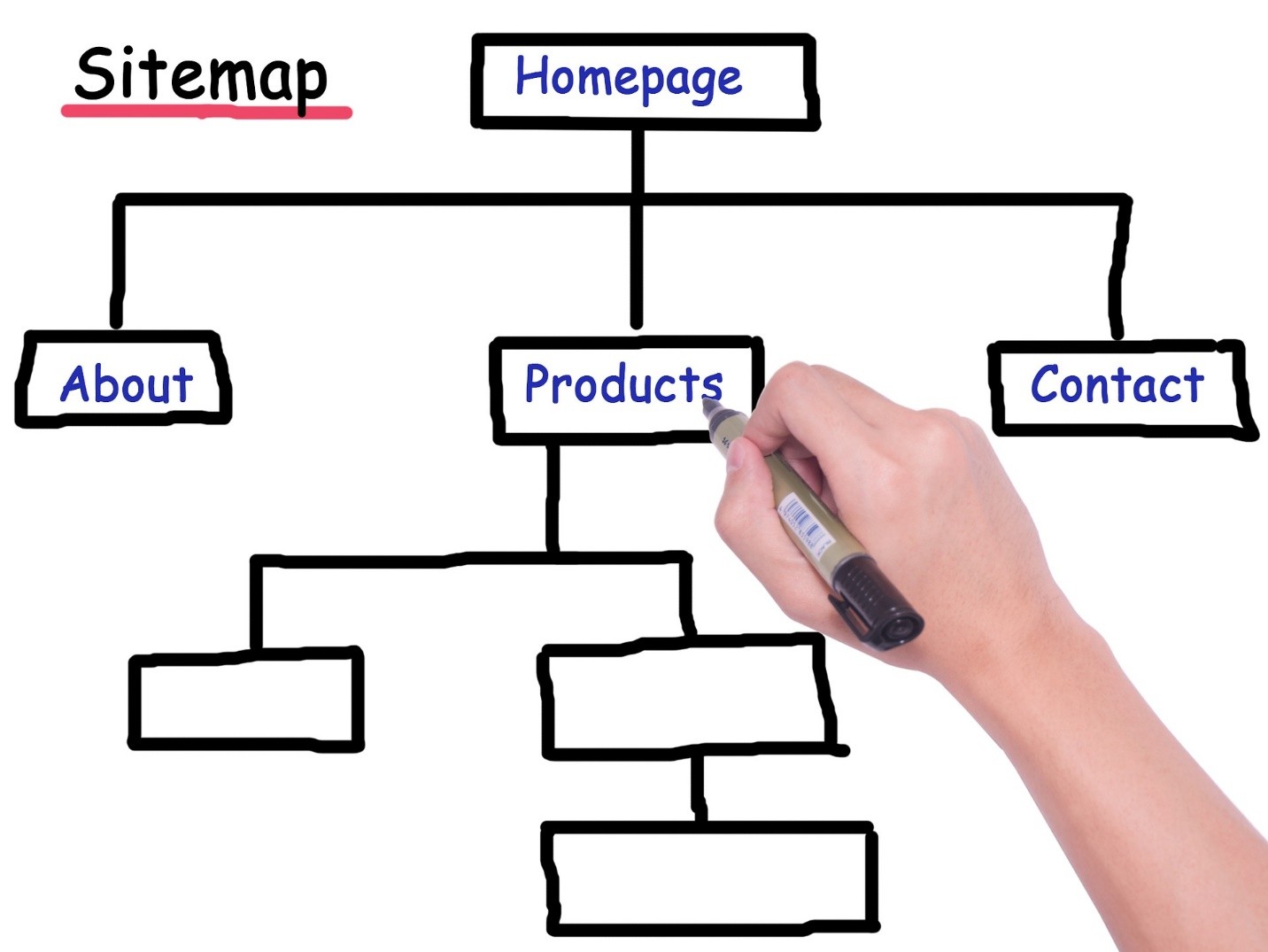
User-base Locations
Apart from the hosting server’s performance capabilities, your site’s overall latency is substantially influenced by the distance the data is transmitted. The further your visitors are located from the servers, the longer it will take to process and relay their requests.
Consequently, you should try to minimize the latency by choosing a well-networked hosting service. It should come with servers that are placed within your core traffic sources.

To make an informed judgment, therefore, you should review your site visitors’ precise locations from their respective profiles. And if you don’t have a website yet, you can alternatively rely on the target market demographics.
Hosting Models
“Magento Hosting” is just a general term referring to pretty much all the site hosting solutions in this space. When we break it down, it turns out there are several types of hosting models, with distinctively diverse frameworks and functionalities.
Well, choosing the best Magento hosting solution involves understanding all the primary types on the web. This alone should help you knock off several categories, so you can focus only on providers that handle your level of business needs.
Now, there are two principal systems of classifying Magento hosting services. For starters, you can categorize them based on the party that maintains the servers:
- Managed hosting
- Self-service hosting.
Or, instead, classify them according to their server architectures:
- Cloud servers
- Shared servers
- Dedicated servers.
Managed Hosting
Quite simply, managed hosting providers handle all the technical stuff for you. They install your Magento site onto their servers then proceed to maintain it on your behalf.
The best managed hosting providers for Magento should be able to update their systems frequently, proactively monitor their servers and your site 24/7, seal possible security vulnerabilities, fix all server issues, provide uninterrupted technical support, plus optimize sites for enhanced overall performance.
Self-Service Hosting
This is the opposite of managed hosting. Your business essentially gets to run and manage its Magento servers.
Although it comes with more configuration privileges than managed hosting, this system has two significant drawbacks. First off, you need extensive technical skills to be able to fix and maintain the underlying structure. That’s why most people choose to hire developers to take care of everything.
Secondly, and most importantly, it’s more expensive. Providers usually charge more for self-service hosting because of the high level of resources it takes to set up the servers.
Dedicated Servers
Just as the name suggests, dedicated servers refer to a system where the provider reserves an entire server for your site. Consequently, you get to capitalize on the server’s full capacity without interruptions from other users.
This type of solution is particularly ideal for site owners who want to control the type and number of disks, plus the corresponding RAM usage. It’s also perfect for handling large product catalogs, supporting drastic traffic surges, and maintaining optimal site performance speeds.
Sadly, all these resources come at a cost. It just so happens that dedicated servers are way pricier than shared servers. Consequently, they are typically adopted by large enterprises and organizations.
Shared Servers
The shared server architecture is a possible alternative if the dedicated option turns out to be too pricey. Contrary to the latter, the resources are shared between multiple users bundled together in one server. Well, that simply means one thing. That the server will not be configured accordingly to specifically fit your site’s needs. Rather, your site is the one that gets to adapt to the server’s provisions.
The problem here is that shared translates to reduced resources. In essence, you can expect to have limited disk space and performance speeds.
But, don’t get me wrong. You can still achieve a well-optimized website if you choose to a shared hosting package with favorable resource allocations. In fact, that would be a thoughtful way to minimize your Magento hosting costs.
Cloud Servers
Cloud servers are basically virtual hosting machines vended by providers over the internet.
From your end, this setup almost feels like a dedicated server, considering access is granted by a streamlined single-account interface. Then from their end, providers maintain the entire framework, including the server hardware plus the corresponding management software.
Performance
We’ve mentioned performance quite a number of times already. So, what exactly does it entail?
Now, it goes without saying that the best Magento hosting solution should come with superior performance optimization capabilities. And that depends on several holistically connected elements.
However, above everything else, the critical factors to consider here are:
- Uptime
- Loading Speed
- Server Location
- Caching
Uptime
Before we even get to loading speeds, you should first evaluate various providers based on their respective server uptime rates. This, in simple terms, refers to the precise time fraction a server has remained online without going down.
Well, of course, you’d wish to have 100% uptime. However, if the many web tests we’ve conducted recently are anything to go by, that’s technically unattainable. So, let’s be a bit realistic and go for the second best scenario- 99% uptime. Now that’s very much possible, especially on a well-powered network of servers.
Luckily, there are many hosting services that come with 99%-99.9% uptime guarantee. A number of them even go ahead to promise some form of compensation in the event your site experiences a downtime.
All in all, hosting your site on a server with a proven 99% uptime rate is a great way to safeguard your business. You’ll be able to sell at any time without inconveniencing your shoppers.
Loading Speed
So far, the average page loading time is 8.66 seconds on PC, and 22 seconds on mobile. Seems decent on paper, but then it turns out to be frustratingly long when it comes to staring at a black screen. That’s pretty much why each tenth of a second delay, on average, drops your conversion rate by 7%.
According to Google, your pages should not take more than 3 seconds to load. The sweet spot is at the 2.4-second mark. And if you manage to reduce it even further to 1.7 seconds, your website will essentially be faster than roughly 75% of the web.
Now, this is where it gets complicated for most people. Comprehensively assessing a hosting provider’s ability to achieve that goes deeper than reviewing just the page loading times.
It should begin with the most fundamental unit- the server response time. Examine how fast the providers’ servers receive and process requests by running a TTFB test. Consequently, you should be able to establish their respective server delay periods in terms of the Time To First Byte values.
The current average TTFB is 2.11 seconds, which is considerably longer than the recommended 1.3 seconds. Going by that, the best Magento hosting servers should be able to consistently maintain values that are way below 1 second. A sub-0.5 seconds TTFB server, in essence, would be just perfect.
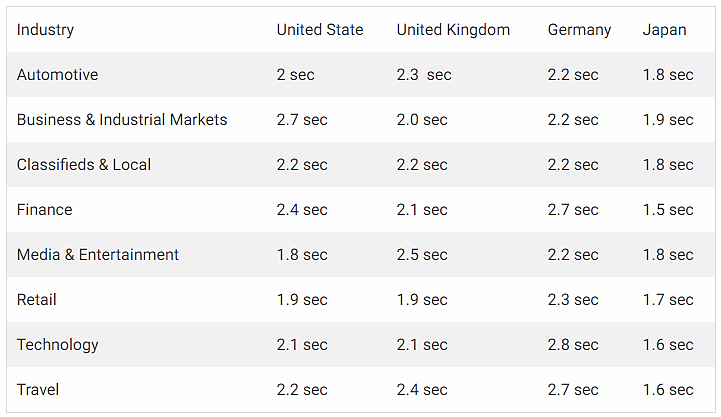
Now, that should work hand in hand with strategic server locations, advanced caching networks, plus CDNs (Content Delivery Networks) to fully optimize your page loading speeds.
Server Location
The server location is an often-overlooked factor when it comes to Magento hosting. Many people assume that at constant internet speed, web content typically takes the same amount of time to be delivered regardless of the location.
But, here’s the thing. An internet user in the US connected to a 50 Mbps network may not necessarily be able to load a specific page at the same rate as someone with similar speeds in the UK.
Why?
Although there are several elements that come into play here, a lot of it has to do with the data transmission distance from the data center. The farther a server is physically positioned, the longer it takes to relay a request and subsequently deliver content.
Your best bet, therefore, should be a host with servers that are located within a data center in your primary target countries. If you’re planning to deal with US-based buyers, for instance, go for a solution with data centers in any of the 50 States. The closer they are to your market, the better.
Caching
Let’s be honest. Even when you tweak your Magento store to minimize its size, loading the live site takes considerably longer than a locally-cached version.
What does this mean?
Well, it’s possible to boost your site loading speeds quite drastically by relying on a well-networked cache framework. Therefore, you should assess Magento hosting providers beyond their static capabilities. The best solutions come with advanced caching systems.
Technical Support
Whichever way you look at it, leveraging Magento hosting solutions from a provider means one thing. That you’re basically entrusting a third-party with your store. That the survival of your business partly depends on how they host the site, and the subsequent decisions they make about each resource.
Considering such high stakes, you should be able to maintain a direct line of communication at all times. And that’s only possible with a hosting provider that can manage 24/7 customer support.
And that’s not all. Apart from the availability rate, review the underlying support architecture.
Now, there’s nothing as frustrating as being forced to raise an email ticket during an emergency. Or waiting in line for a call center agent. That’s why most held up callers will not hang around for more than 90 seconds.
So, to avoid such issues, hosting support should also be structured favorably. Choose a service with a dynamic setup that grants immediate access to tech experts across multiple channels at the same time. In addition to phone support, you should be able to get in touch with knowledgeable agents through email, live chat, plus web forums at all times.

And to confirm their standard response times, simply test all channels provided by various hosts. A couple of random tech emails, phone calls, and live chat queries should do the trick.
Security
If you thought cybercriminals might be struggling to cope with today’s web security systems, then get this- more than 90,000 websites are hacked every day. Consequently, you can bet that they’ll have already gained access to tens of thousands of sites by the time you go to bed.
And you know what?
The bulk of them, certainly, won’t be going for unrewarding sites like personal blogs. They commonly target big fish, including online stores and prominent organizations.
But hang on a minute. Isn’t Magento supposed to be a secure and stable in the first place?
Well, I’d say yes and no. Magento is indeed renowned for its security features. But then again, open-source is like a double-edged sword. By revealing its source code, Magento allows even criminals to study its underlying structure and identify potential vulnerabilities.
Unfortunately, they’ve been able to successfully capitalize on that a number of times. In 2018, for example, security researchers discovered that more than 1,000 Magento sites had been infiltrated through brute-force attacks. And that’s not all. There are many types of Magento malware that experts have uncovered in the recent past.
Considering the consequent risks, you cannot afford to compromise your online store with a shaky security system. Your best chances are with a hosting solution that has comprehensively analyzed the whole Magento framework, and subsequently implemented effective multi-layered security features.

Apart from strong firewalls, it should come with an SSL certificate plus SSH encryption to protect site data. And to avoid being blacklisted along with other crude websites, you should ensure the hosting provider has blocked off spammers, porn sites, and banned sites. Otherwise, hosting them on the same IP net with your store could potentially be detrimental to your business.
Come to think of it, such a system would, of course, need updates and patches to handle bugs, plus seal potential loopholes. You should, therefore, confirm the applicable update schedules, and then choose services with regular automatic system patches.
To complement all that, it’s critically important to have a complete system backup on a daily basis. This safeguards your website, allowing you to restore all your data in case you happen to lose it.
Web Hosting Scalability
As a business person, you expect your online store to grow progressively into the future. If everything goes well, you’ll be able to expand your customer base, and perhaps even extend your store to run several parallel entities concurrently.
And while you’re seeking to achieve that over the long haul, it’s possible that you might make a few site changes along the way.
Whichever the case, one thing’s guaranteed. That you’ll end up reworking your website over and over again. Apart from regular minor adjustments, you’ll probably need to do a couple of extensive configurations from time to time.
Now, to be able to implement such changes, you need a hosting service with flexible features. And not just the server space. All the critical resources should upscale and downscale holistically to accommodate dynamic site adjustments.
What does this mean?
Well, the best case scenario is a hosting provider that can freely customize all the principal server resources based on your current needs.
However, since that privilege is commonly reserved for large-scale sites only, you can alternatively settle for a solution with sequentially-provisioned packages. The purpose here is the ability to downgrade or upgrade your package as you wish.
And just in case a site overhaul fails to pan out, the hosting platform should allow users to revert to previously backed up versions.
That said, another critical factor to consider here is on-demand scalability- especially when it comes to how the server responds to traffic surges. To keep your store running smoothly, a great hosting service ought to react accordingly in real-time, by scaling its server resources to facilitate increased traffic flow.
Notable Magento Hosting Providers
Some of the dominant players in this web hosting space include:
1. SiteGround Hosting
SiteGround is particularly ideal for users seeking a performance-optimized Magento hosting solution for standard business. It combines its powerful Supercacher with a content delivery network system supplied by Cloudflare- to achieve fast page loading speeds (helps user experience AND search engine optimization).
The bulk of SiteGround packages can accommodate an unlimited number of sites. Subscribing to either of them will also grant you a drag and drop builder for site customization, SSD storage, SSL encryption, daily site backups, free site migration, plus unlimited email accounts.
2. Cloudways Hosting
As a managed hosting provider, Cloudways leverages AWS and other network infrastructures to avail an extensive grid of servers. It’s especially suitable for users who’d like to take advantage of over 30 different server location options.
And to boost site loading speeds even further, Cloudways goes ahead to provide specialized enhancement capabilities known as Thunderstack.
Another benefit here is managed security, owing to its full-time network monitoring system, appropriate firmware patches, and regular updates, among other features.
3. MageMojo Hosting
Since it exclusively deals with Magento, MageMojo has holistically configured its server resources specifically for e-commerce sites.
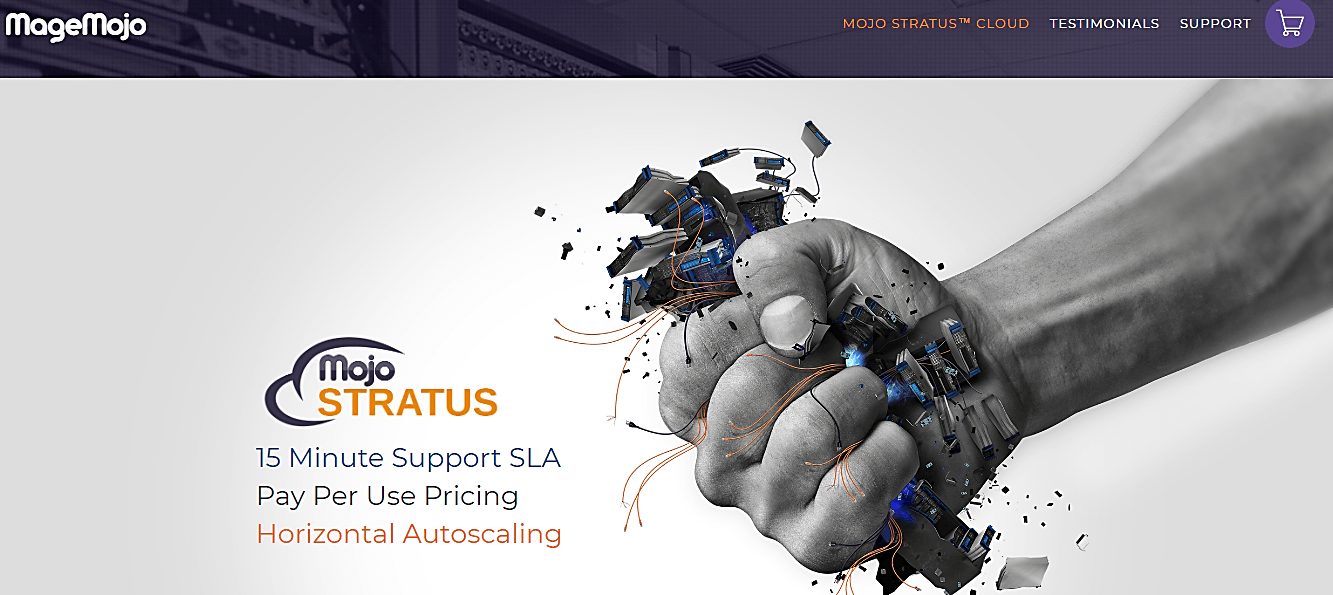
Although its packages are comparatively pricey, they provide great value when you consider their corresponding provisions. You’ll get one of the best technical support systems in the market, SSD drives, a dedicated server, plus much more
4. Bluehost Hosting
It’s a very affordable hosting solution, Bluehost allows you to build a site with WordPress which gives you complete control and flexibility over your website.
Bluehost is not optimized for exceptionally fast loading speeds or caching. But, it’s a considerably great option if you’re seeking a Magento hosting service that won’t eat into your wallet.
Its packages are reasonably priced, considering the fairly decent hosting features you get for a comparatively low price- at least 50 GB storage space, email accounts, multiple sub-domains and parked domains, unmetered bandwidth, etc.
5. Nexcess Hosting
Although you’ll find a base package for beginners, Nexcess focuses on mid-sized businesses. They get to take advantage of its dedicated dell enterprise servers, which are supplemented by a CDN network to achieve enhanced site performance.
Each server supports email hosting, 30 accounts, 10 online stores, and goes ahead to offer PCI compliant security features, among other functionalities.
Summary: Top Web Hosting for Magento e-Commerce Stores
| Why You Need The Best Magento Hosting |
|
| Choosing Magento Hosting |
|
| Notable Magento Hosting Providers |
|
Now, let’s debate. Going by all these factors we’ve explored, which Magento hosting service do you think qualifies to be the best? Why do think so?
Bottom Line: IF in doubt, you can’t go wrong with Siteground here.
Here are related articles you may be interested in:
- Kinsta vs WP Engine: The Ultimate Hosting Face-off
- BlueHost vs DreamHost vs SiteGround: Which is the Best Hosting Provider?
- WP Engine vs Rackspace: Which is the Best Managed Web Hosting Service?
- Top Alternatives to Siteground Hosting
- Siteground vs Bluehost Compared
- Namecheap vs Bluehost Hosting: Which is Better?

